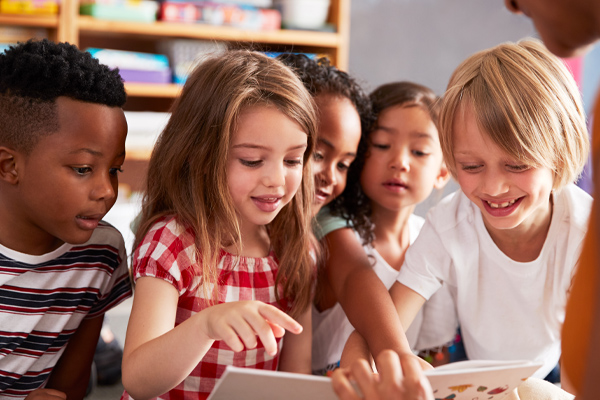SEL curriculum
Children, whether at home or school, climbing on the playground, or wandering peacefully in nature, are learning all the time, at every moment. Although structured learning is the backbone of the study system in nearly every school, a SEL curriculum is emerging as a more natural way for students to acquire social and emotional skills. An innovative way to increase the social and emotional skills of your child or student is through literacy.
What is a literacy-based SEL curriculum?
If you have an early learner at home or in your classroom, you likely already know just how important social and emotional learning is. But if you aren’t yet familiar with a literacy-based curriculum, you are probably wondering exactly how it will benefit the children in your life. Since social and emotional learning (SEL) and literacy-based curricula are intricately entwined, the advantages are twofold.
Literacy-based curriculum is any type of instruction where a story is integrated into the learning environment. Young children use the story as a foundation for natural learning experiences in the SEL realm. With a literacy-based curriculum, you won’t find any quizzes or sets of questions to answer. What you will find is a completely organic experience where children relate to the themes of a story and discuss it naturally, leading to stronger levels of social and emotional understanding and competence.
But what does the research tell us?
When learning occurs through a literacy-based curriculum, early learners are better able to absorb and hold onto the all-embracing themes of caring, kindness, and the importance of having a strong community, all of which are needed when trying to navigate the world around them. Research has shown that children exposed to an evidence-based literacy curriculum show improvement in areas of aggression, decision-making, and peer involvement. When a literacy-based curriculum becomes the backbone of education, sweeping changes can happen.
What are the benefits of a SEL curriculum?
A social and emotional learning curriculum will produce benefits in many areas of your early learner’s life.
Community Building – Common themes within a typical literacy-based program will include the importance of community, building friendships, and working together through both hardship and good times. Discussing these ideas and building upon this foundation of strong community will help children (and adults!) find their own community as well. That might be in their school network, their neighborhood, or even their family. When you are a little one navigating through a big, and often scary world, having a strong sense of community is like having a safety net to fall back on.
Fostering Kindness – We live in a volatile political climate, where kindness isn’t often part of the ongoing social commentary. Kids are exposed to a lot of complex and adult situations just by being aware of the world around them. Children need to see and hear ongoing examples of kindness in order to understand what it means to care for others. Literacy-based programs often weave themes of kindness within their pages. By building this loving and kind foundation, children will be able to balance out the anger and devastation seen in the world today.
Increased Empathy – Empathy is an emotion that begins in infancy. Babies begin to experience it when they see others cry or get hurt, usually before they are even a year old. When empathy is increased naturally, through reading and storytelling, children are better able to understand what it means to understand and share the feelings of another person. Empathy is an essential aspect of any thriving child or adult community member and something that needs to be discussed organically in all educational environments.
Promotion of Social Understanding – Little ones don’t always understand social implications. What adult hasn’t laughed at a social faux pas from a five-year-old? But reading books about different social situations will benefit children immensely. Even though they may not have experienced everything themselves, reading about how social interactions work can have a huge influence on what they understand. Early learners who may need a bit of help with friendly communication will also reap extra benefits in this area.
Increased Academic Learning – While it may not be the primary reason that many parents and educators implement literacy-based programs, academic achievement is an offshoot of social and emotional learning. When children are feeling self-confident in their own abilities, academics become less of a challenge. Since SEL fosters independence, self-confidence, trust, and compassion, early learners naturally begin to make better decisions when it comes to academic challenges.
If you are looking to incorporate a literacy-based curriculum at home or in the classroom, there is an easy way to start. Try picking a set of books that complement your own values. By simply looking for stories that promote positive social interactions, and emphasize kindness, respect, and empathy, you will be well on your way to helping your early learners develop foundational social and emotional skills.
Want to learn more about our SEL Curriculum? Click here to discover the literacy-based, hands-on humanKIND Curriculum!
